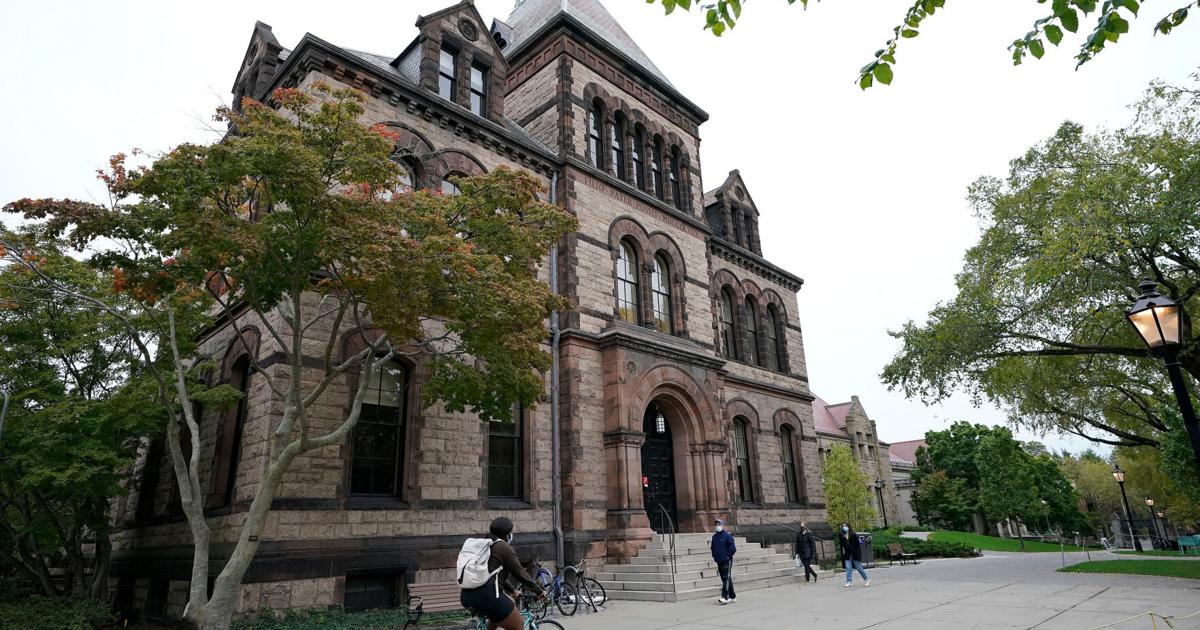White House Seeks Commitment from Nine Major Universities on Trump’s Political Priorities for Federal Funding
WASHINGTON — The White House is asking nine major universities to commit to President Donald Trump’s political priorities in exchange for more favorable access to federal funding. A document sent to these institutions encourages them to adopt the White House’s vision for America’s campuses, with commitments on key issues including admissions, women’s sports, free speech, student discipline, and college affordability.
Signing the proposed agreement would offer universities “multiple positive benefits,” such as “substantial and meaningful federal grants” and “increased overhead payments where feasible,” according to a letter accompanying the compact. The administration frames this as a proactive initiative ongoing alongside investigations into alleged civil rights violations on U.S. campuses.
The “Compact for Academic Excellence in Higher Education”
Named the “Compact for Academic Excellence in Higher Education,” the 10-page proposed agreement asks participating universities to accept the government’s definition of gender and apply it to campus facilities like bathrooms and locker rooms, as well as to women’s sports teams.
It further asks colleges to:
- Stop considering race, gender, and various student demographics in admissions decisions.
- Require undergraduate applicants to take the SAT or ACT.
The compact was sent Wednesday to nine selective public and private universities:
- Vanderbilt University
- University of Pennsylvania
- Dartmouth College
- University of Southern California
- Massachusetts Institute of Technology (MIT)
- University of Texas
- University of Arizona
- Brown University
- University of Virginia
It remains unclear how or why these specific schools were selected. The nine universities are considered “initial signatories” and have been invited to provide feedback before finalizing the language, with a decision requested by November 21.
White House Unveils New Incentive-Based Approach
The memo marks a strategic shift by the administration, offering rewards—not just penalties—to encourage adoption of Trump’s political agenda. Many of the compact’s demands mirror those made during prior conflicts in which the administration cut billions in federal funding from institutions such as Harvard and Columbia, which were accused of liberal bias. Notably, a federal judge overturned those funding cuts at Harvard last September, ruling that the government had overstepped its authority.
Several universities contacted are currently reviewing the compact. The University of Virginia stated there is no information explaining why it was chosen. Its interim president convened a group of administrators to evaluate the letter.
Leaders of the University of Texas system expressed enthusiasm about their inclusion. Kevin Eltife, chair of the Board of Regents, said the Austin campus was “honored” to be considered for the compact and its accompanying funding opportunities. “Today we welcome the new opportunity presented to us and we look forward to working with the Trump Administration on it,” Eltife added.
Meanwhile, California Governor Gavin Newsom warned that any universities in the state signing onto the compact would lose access to state funding, including Cal Grants—a $2.8 billion student aid program. In a forceful statement, Newsom declared that California “will not bankroll schools that sell out their students, professors, researchers, and surrender academic freedom.”
Enrollment Caps and Tuition Restrictions Proposed
The compact also sets important limits regarding international student enrollment, capping it at 15% of an undergraduate student body, with no more than 5% of students coming from any single country.
Federal data indicates all nine invited universities currently fall within the 15% threshold, although Dartmouth and USC are close, each at around 14%. While many universities do not disclose international enrollment by country, data show approximately 120 institutions exceed the 15% cap, including Columbia University, Emory University, and Boston University.
Additional provisions within the compact are designed to promote conservative viewpoints on campuses. Universities would be required to maintain a “vibrant marketplace of ideas” where no single ideology dominates. They would need to evaluate faculty and student views to ensure diverse perspectives are represented throughout departments.
To support this goal, the compact calls for actions including “transforming or abolishing institutional units that purposefully punish, belittle, and even spark violence against conservative ideas.” This also involves policies aimed at managing protests, specifically those that disrupted campuses during the Israel-Hamas war last year. Institutions would be expected to prevent disruptions to classes and campus libraries, and ensure that demonstrators do not heckle other students.
Concerning tuition, campuses that sign the compact would have to freeze tuition for U.S. students for five years. Additionally, universities with endowments exceeding $2 million per undergraduate would be prohibited from charging tuition for students pursuing degrees in “hard science” fields.
Criticism and Concerns Over Academic Freedom
The compact has drawn strong criticism from various quarters. Ted Mitchell, president of the American Council on Education, urged universities to reject the deal, warning that it threatens institutional independence and undermines free speech. “It’s not worth the compromises that they would have to make,” Mitchell said, calling it a “Faustian bargain.”
Free speech advocacy groups, faculty associations, and notable figures such as Larry Summers — former Treasury Secretary and Harvard University president — have also expressed opposition.
Summers acknowledged that elite universities may have “lost their way,” but characterized the compact as akin to trying to “fix a watch with a hammer,” calling it “ill conceived and counterproductive.” He warned that the backlash against such a blunt instrument “will likely set back necessary reform efforts.”
Enforcement and Voluntary Nature of the Compact
The terms of the agreement would be enforced by the U.S. Department of Justice. Institutions found violating the compact could lose access to its benefits for a minimum of one year, with repeated violations extending penalties to two years.
The compact is clear in stating that “institutions of higher education are free to develop models and values other than those below,” but doing so would mean electing to forego the federal benefits outlined in the agreement.
As the education sector continues to grapple with ideological divisions and federal oversight, this compact represents a significant and controversial effort by the White House to shape the future of American higher education through financial incentives tied to political compliance.



